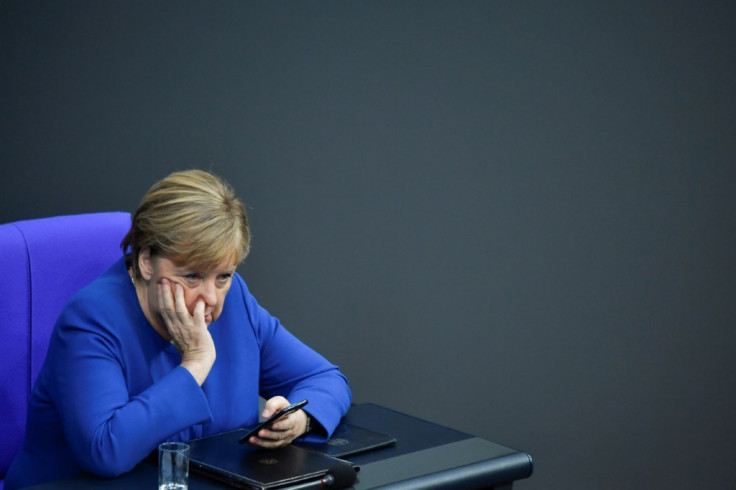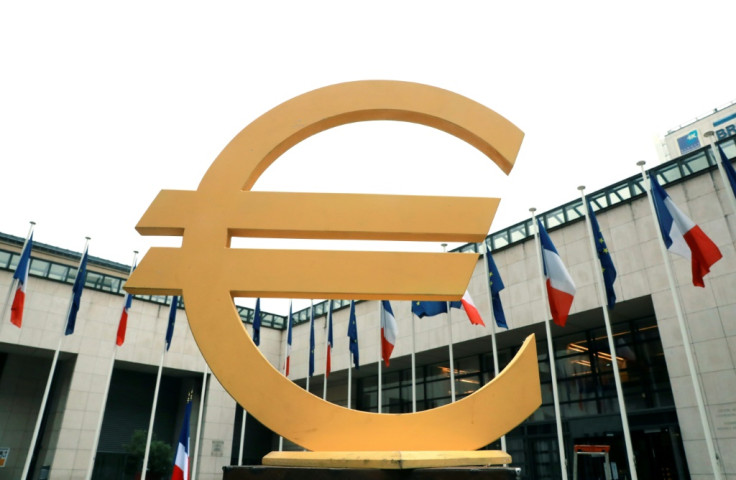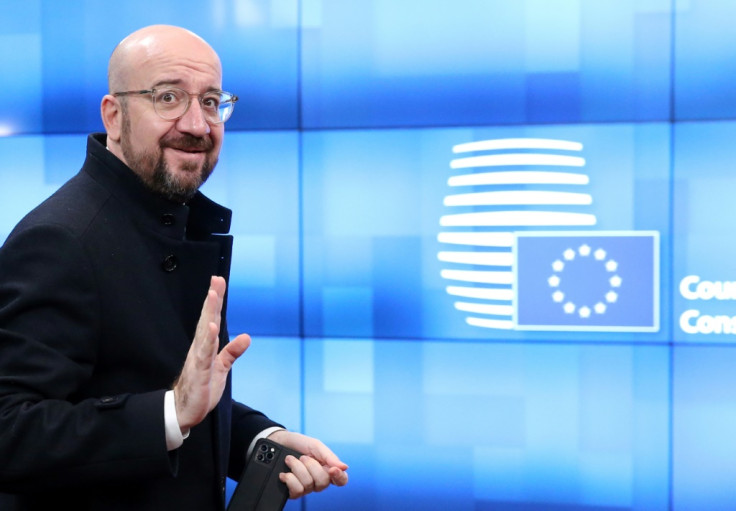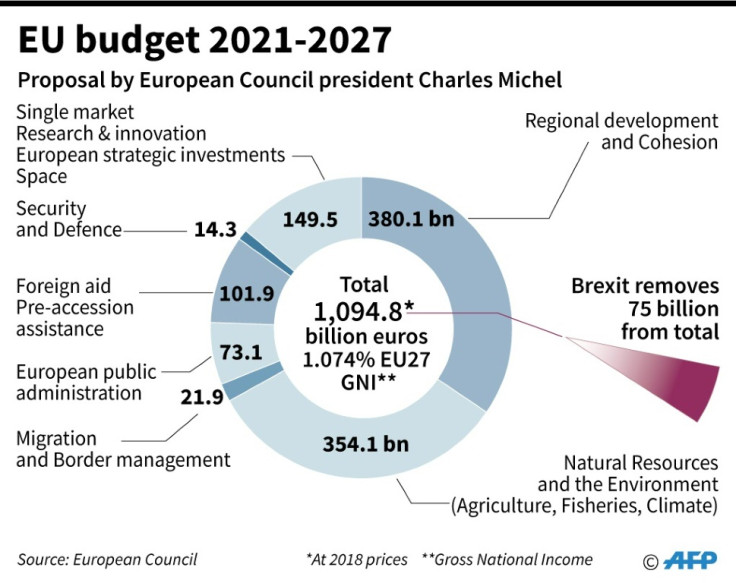Stormy EU budget summit enters second day
The drawn-out tussle for money is a Brussels ritual, but is especially problematic this time around because of Britain's departure from the EU.
EU leaders clashed through the night early Friday as a stormy summit to decide the bloc's seven-year, trillion euro budget entered a second day.
The meeting to decide the EU's first budget since the UK left the bloc exposed bitter divisions between penny-pinching rich nations, poorer ones wanting to preserve spending and others wanting to fund grand global ambitions.
The drawn-out tussle for money is a Brussels ritual, but is especially problematic this time around because of Britain's departure from the EU.
The "Brexit gap" caused by the loss of the UK's contribution is 75 billion euros ($81 billion) over the 2021-2027 period, but French President Emmanuel Macron insisted this must not mean the EU should trim its ambitions by cutting spending.

German Chancellor Angela Merkel warned there were "major differences" to overcome among the 27 countries, as some officials braced for talks to drag into the weekend.
"We are not satisfied with the current situation because the balance within the net payers has not yet been properly negotiated," Merkel said as she arrived.
Summit host Charles Michel, the EU Council president, worked late holding one-on-one meetings with leaders trying to find common ground, hoping to table a new proposal on Friday.
"I am convinced that it will be possible to make progress in the next hours or in the next days," Michel told reporters.

The self-styled "frugal four" -- the Netherlands, Sweden, Austria and Denmark -- opposed the deal, adamant that the bloc curb spending.
Macron, who wants farm payments protected and more money for European defence projects, said he was ready for the long haul.
"I will take all the time that is needed to get an ambitious agreement that defends the interests I represent," he said, insisting that with "a spirit of compromise and ambition" a deal could be found.
He added it would be "unacceptable for Europe to compensate for the British departure by reducing its means".

But Finnish Prime Minister Sanna Marin slapped down the French leader's call for post-Brexit largesse, saying the EU had to be "realistic" following the departure of one of its biggest net contributors.
The minimum spending in the multi-annual financial framework (MFF), as the long-term budget is called, is just over one trillion euros.

The discord is over how much this budget should increase by, how spending might be shifted between priorities and how much each member state should pay as a percentage of its gross domestic product (GDP).
Another touchy issue is whether budget rebates pocketed by a few wealthier countries should still exist.
The last MFF came in at 1.08 trillion euros (in 2018 prices).
The "frugal four" want to rein in the budget and make up only some of the ground of the Brexit gap. They also want to keep their rebates, as does Germany.
Austrian Chancellor Sebastian Kurz struck a tough note, insisting Vienna's budget contributions must not "grow immeasurably" and rejecting a compromise proposed by Michel.
Dutch Prime Minister Mark Rutte tweeted a picture of himself and the other "frugals" insisting for lower spending, while adding that he had come to Brussels with some leisurely reading, confident that his position would not budge.
"I've brought the biography of Frederic Chopin along," Rutte told reporters.
At the high end of spending demands is the European Parliament, which wants the MFF expanded to 1.32 trillion euros to pay for costly goals such as turning the European Union into a carbon-neutral economy within three decades.
A "friends of cohesion" group of mostly eastern and southern EU nations wants to ringfence money it gets to help bring infrastructure and society up to the level of wealthier counterparts.
Agriculturally sensitive countries such as France, Spain and Poland are also looking to preserve farmers' subsidies.
The European Commission, which aims for a "geopolitical" mantle under President Ursula von der Leyen, is trying for a target of 1.13 trillion euros.
Ahead of the summit Michel proposed
an MFF of 1.09 trillion euros, making cuts to cohesion funds and farm subsidies to finance other priority areas.
His plan, though, had little support and his teams were expected to rework it in time for day two of the summit on Friday.
Brussels police plan to keep access to the Schuman district, where the 27 EU leaders are meeting, restricted until Saturday.
Copyright AFP. All rights reserved.
This article is copyrighted by International Business Times, the business news leader





















